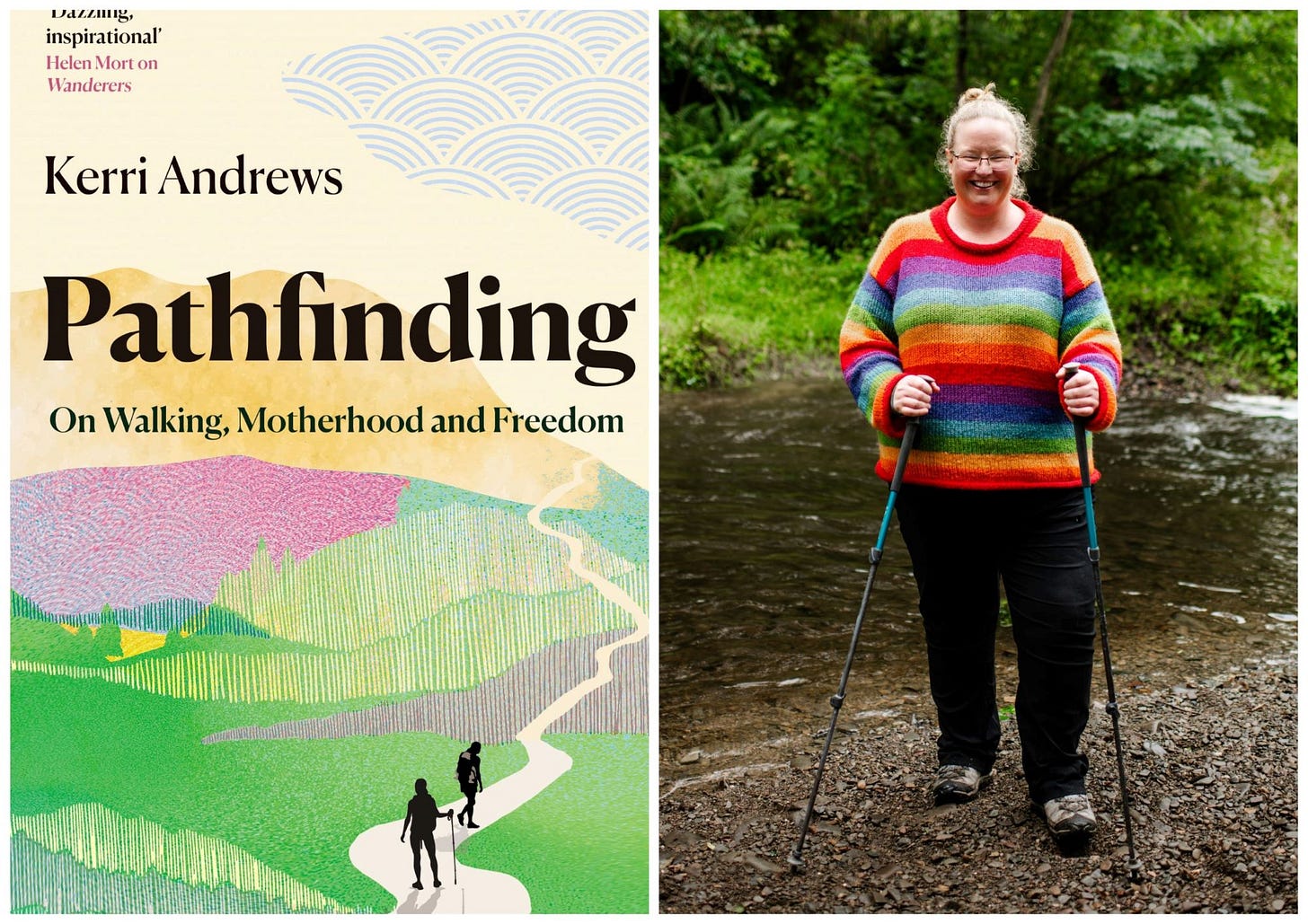Kerri Andrews on the joys and challenges of a walking mum
Author steps up at Books on Tyne
Kerri Andrews returns to Newcastle on Monday, down from her home in Peebles to get the Books on Tyne festival started at the Lit & Phil.
As walker, mother, author and academic, Kerri wears a lot of hats.
Life, she tells me on the phone, is “a juggle”, and even more balls have been in play since she took up a new post at a university in Ireland, requiring her to travel there once a week.
She and the father of their two children, aged four and seven, have also separated. A “complexity”, she acknowledges, although they still live near each other.
“Walking tends to happen in the gaps when I don’t have the children, when they’re with their dad,” she says.
“Sometimes we do walk together and that’s lovely. I really enjoy walking with the children but I’m conscious of risk and their levels of tolerance, so I do pare back the difficulty quite substantially if it’s just me.
“I could be a bit braver when it was two adults but occasionally I get to walk with friends and then we can be more adventurous.”
Walking is very much Kerri’s thing.
Previously she has written Wanderers: A History of Women’s Walking, produced the first anthology of women’s writing about walking and also the first book of letters by Nan Shepherd (1893 – 1988), Scottish writer and hill walker.
Her latest book, Pathfinding, published by Elliott & Thompson and subtitled On Walking, Motherhood and Freedom, is much more personal.
“It was necessary for the telling of this story,” she says.
“It wasn’t a way I’d written before and it took quite a lot of work, deciding what to include and what not to expose.
“That was a delicate balance that needed to be managed quite carefully. But I don’t think I could have told the story without that personal element there.”
Early in the book, which makes for inspirational but often quite painful reading, she recalls her early reaction to her first pregnancy when on a solo working trip to America.
She fell into a deep depression, a mental crisis, and had to get home.
Back on an even keel by the time her son was born, she then succumbed to post-natal depression, at its worst “like being in a dark enclosed place where there was no horizon and no hope”.
A woman who had revelled in walking many miles and had climbed many of Scotland’s Munros (mountains at least 3,000 feet high) was now a mother.
In her book she reflects on what motherhood does to body and mind and on the compromises it demands.
Kerri relates her experiences but also those of other mothers who walked with her, some of whom she knew already but others who had responded to her call-out on social media.
The first we encounter is Jemma, mother of twins, who with Kerri’s help is at last able to enjoy a walk with her babies on the nearby beach.
Then there are the women walkers from history Kerri has got to know through her research, including Mary Shelley, author of Frankenstein, and her mother Mary Wollstonecraft, the influential early feminist.
Dorothy Wordsworth’s there, too, Kerri marvelling at how she managed to lug her hefty baby nephew around the Lake District with no modern back carrier to ease the burden.
So the book is about the long (and often overlooked) history of walking mothers and “my own story as a walker who became a mother, and who needed a great deal of help to find the path between my old life and the new”.
It will strike a chord, I imagine, with many modern mothers who pick up Kerri’s book and then trudge with her to the climactic passage where she tackles the West Highland Way.
Kerri says she wasn’t always a walker. Brought up in Worcestershire, she’d had a childhood fancy to walk Offa’s Dyke but her parents had no interest t all in the outdoors.
“I didn’t know anyone who walked so literally had no clue where to even begin,” she says.
She did do some walking with a cousin who required rehabilitation after a terrible car accident. But where it really began for her was when she moved to Leeds to study and discovered the “beautiful” Yorkshire Dales.
When later she moved to Scotland, she joined a walking club, fell in with people who showed her the ropes and became a passionate, dedicated walker and scaler of those Munros.
The passion certainly radiates from the new book although Kerri says it was difficult to write, blending her story with historical accounts and those of her walking companions.
“I was privileged to hear some very sensitive stories from other people about their experiences of pregnancy loss and the difficulties they’ve had after having children.
“There was a lot of backwards and forwards with them about what they were happy for me to include.”
Kerri hopes her book adds another dimension to walking literature, much of it written by men who “take it for granted that they might have kids but of course they’re going to go off walking and then write about it because they’re allowed to.
“Books by women tend to explain a lot about where their kids are and who’s caring for them.”
And while she would never put anyone off walking, she says: “I recognise we’re on a spectrum. Not everyone can walk and walking often gets co-opted into this narrative of, well, if everyone just went for a walk they’d be miraculously cured.
“I live with a lifelong genetic condition. It doesn’t matter how many months or years I spend in nature, it’s not going to change that fact.
“What I am an advocate for is recognising the value of whatever it is that people do and can do… it’s all valuable.
“You don’t have to be a heroic mountaineer to take value from nature and be out in the world.”
Kerri’s current project is a book about the history of walking in Scotland, with parity given to male and female walkers. It’s a big topic and in its early days.
But Kerri will be at the Lit & Phil on Monday, November 24, at 6pm to talk about Pathfinding: On Walking, Motherhood and Freedom. Tickets from the Books on Tyne website.





